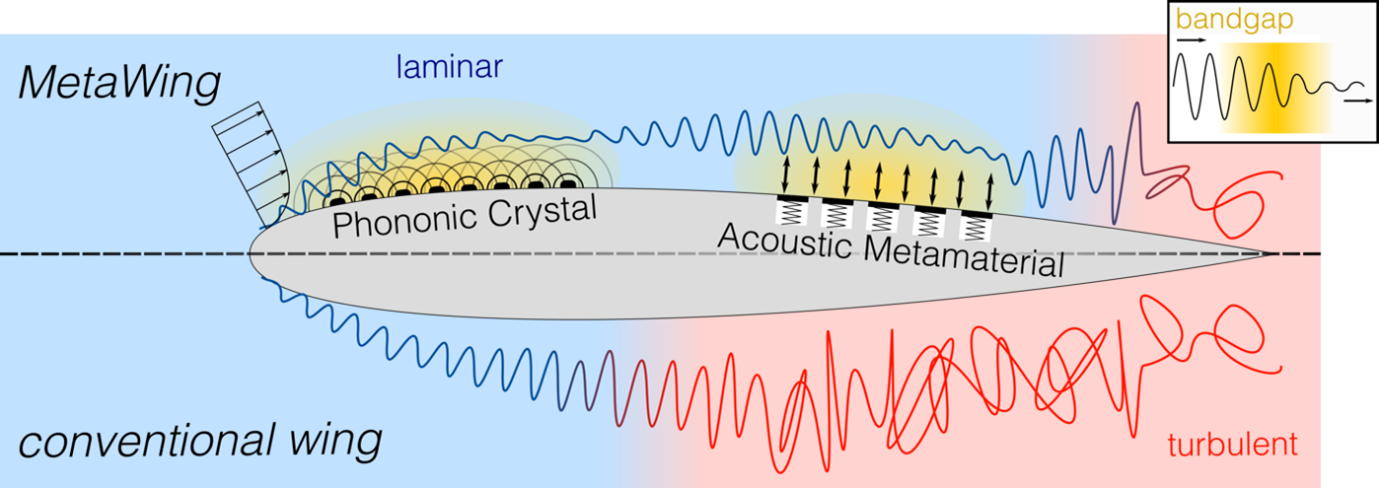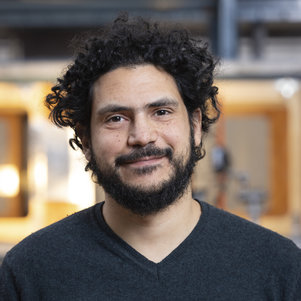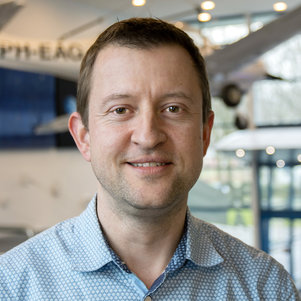ERC grants for Coen de Visser and Marios Kotsonis
The European Research Council (ERC) has announced that Marios Kotsonis and Coen de Visser will receive an ERC Consolidator Grant. The ERC Consolidator grant is aimed at researchers with 7 to 12 years of experience since their PhD, promising results and an excellent research proposal and has a duration of 5 years.
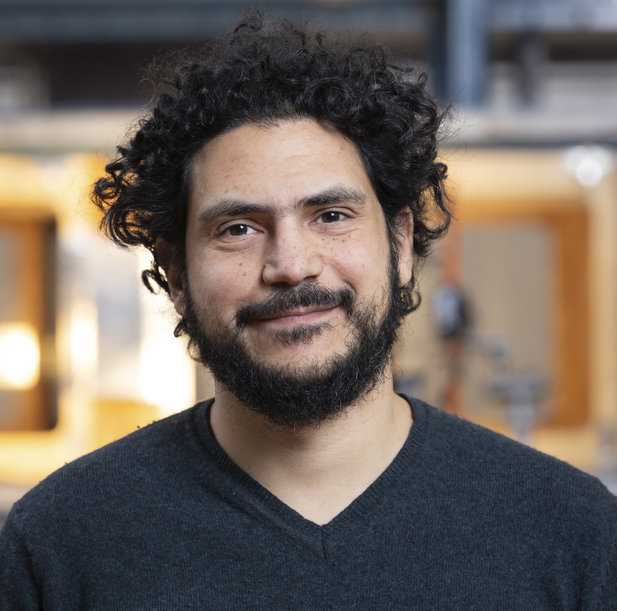
Metamaterials for flow control
Marios Kotsonis – Full Professor of Flow Control
Kotsonis will receive an ERC Consolidator Grant totalling €2.4 million for his research project MetaWing. In this project, he and his team are developing a new class of Metamaterials for flow control. Metamaterials are engineered composite structures that create extraordinary wave phenomena. The main property of Metamaterials Kotsonis will focus on is the bandgap, a range in which waves are suppressed when interacting with the material. He and his team have recently found important evidence of dispersive wave suppression in boundary layers they will explore further. The research can help achieve extended laminar flow which can significantly reduce aircraft drag and offers ground-breaking opportunities for reducing polluting emissions in aviation and other energy-intensive sectors. Kotsonis' research aims to pave the way for ultra-low drag aircraft wings for use in emission-free aviation.
This is my third ERC grant (Starting Grant in 2018, Proof of Concept in 2023), so I am of course very humbled by it. However, although a personal grant, this would have not been possible without the work of my amazing team of PhD’s, PostDocs and Researchers. I am truly priviledged to work with them. The immediate next steps are of course to look for the right PhD and PostDoc candidates for this work. It is extremely multi-disciplinary and explorative, so a certain spirit of adventure is a prerequisit! Stay tuned for upcoming vacancies!
Marios Kotsonis
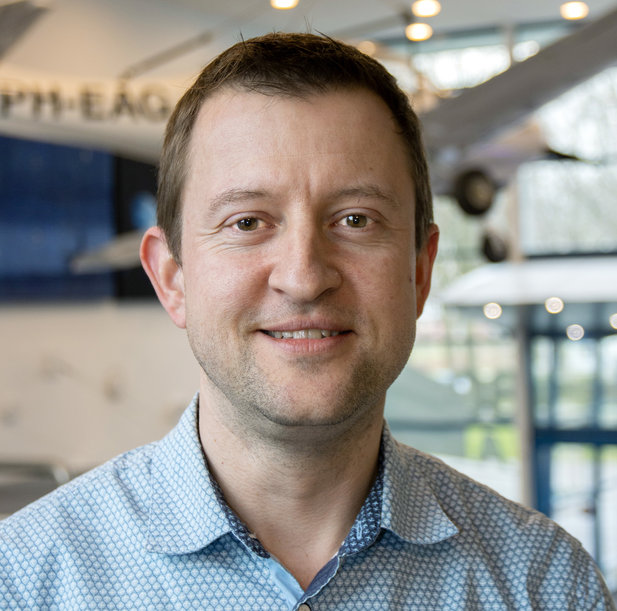
Artificial Physical Awareness: common sense for autonomous robots
Coen de Visser - Associate Professor at Control and Simulation
De Visser receives an ERC Consolidator Grant totaling 2.0 million euros for his research project ARCS (Autonomous Robots with Common Sense). In the ARCS project, he will develop a new principle in control engineering: Artificial Physical Awareness (APA). With APA, autonomous robots such as drones and self-driving cars become aware of their own physical capabilities and limitations. As a result, they can deal intelligently with failing hardware and make 'common sense' decisions that can turn a potentially catastrophic situation into a survivable incident. Equipped with an APA autopilot, drones and other autonomous robots will in the future be able to operate safely in close proximity to humans, animals, and infrastructure.
APA builds on a number of discoveries made within Visser's NWO Vidi project. He and his team have discovered that with mathematical techniques currently used in ecology loss-of-control of a drone can be predicted several seconds before it actually occurs. Within ARCS, these predictions will be combined for the first time with non-linear reachability analysis and advanced non-linear fault tolerant control systems. In addition, De Visser and his team will research the upset recovery behaviour of hoverflies of which the flight characteristics have been changed by giving them small added weights. With the results of this part of the research, new bio-inspired upset recovery strategies will be developed.
It is a great honour to receive this ERC Consolidator Grant. Although this is a personal grant, the scientific research that formed the basis of the ARCS project would not have been possible without the fantastic efforts of my research team and the very good collaboration with our technical staff and top quality of our experimental facilities. I am very much looking forward to conducting this exciting multidisciplinary research and further expanding my research team.
Coen de Visser
